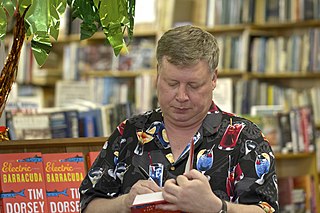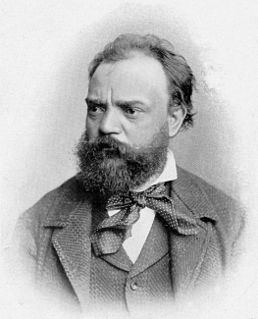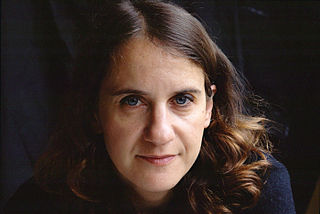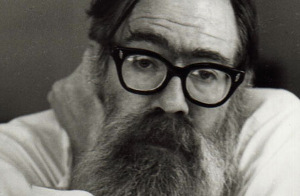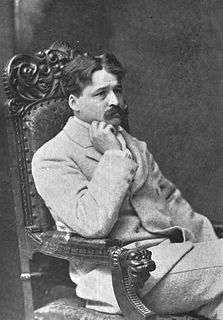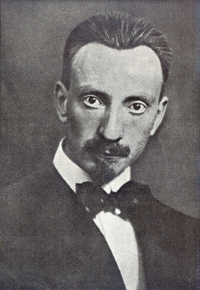Top 403 Beethoven Quotes & Sayings - Page 7
Explore popular Beethoven quotes.
Last updated on December 25, 2024.
His (Swami Vivekananda) words are great music, phrases in the style of Beethoven, stirring rhythms like the march of Handel choruses. I cannot touch these sayings of his, scattered as they are through the pages of books, at thirty years' distance, without receiving a thrill through my body like an electric shock. And what shocks, what transports, must have been produced when in burning words they issued from the lips of the hero!
...stories about [the German composer Johannes] Brahms's rudeness and wit amused me in particular. For instance, I loved the one about how a great wine connoisseur invited the composer to dinner. 'This is the Brahms of my cellar,' he said to his guests, producing a dust-covered bottle and pouring some into the master's glass. Brahms looked first at the color of the wine, then sniffed its bouquet, finally took a sip, and put the glass down without saying a word. 'Don't you like it?' asked the host. 'Hmm,' Brahms muttered. 'Better bring your Beethoven!'
He's [Constable] a great painter as far as it goes, but I don't think he's remotely interesting. Not really. It's very pretty and it's very thorough, but it's not evocative, it's not dramatic, it doesn't do what Beethoven does - it doesn't shake you down to the roots of your soul, which Turner does. Constable is just very nice, basically. And moving on to personality, Constable was a very dull character.
But you have to understand, mental illness is like cholesterol. There is is good kind and the bad. Without the good kind- less flavor to life. Van Gogh, Beethoven, Edgar Allen Poe, Sylvia Plath, Pink Floyd (the early Piper at the Gates of Dawn line up), scientific breakthroughs, spiritual revolution, utopian visions, zany nationalism that kills millions- wait, that’s the bad kind. Tim Dorsey (Hurricane Punch)
It is only by demanding the impossible of the piano that you can obtain from it all that is possible. For the psychologist this means that imagination and desire are ahead of the possible reality. A deaf Beethoven created for the piano sounds never heard before and thus predetermined the development of the piano for several decades to come. The composer's creative spirit imposes on the piano rules to which it gradually conforms. That is the history of the instrument's development. I don't know of any case where the reverse occurred.
If there's one thing I feel very strongly about, it's that there shouldn't be a distinction between pianists who play Ligeti and those who play Chopin. It might seem that they involve different skill sets, but I don't think that's true: whether playing Ives or Bach or Beethoven, you must bring the same imagination, the same sensitivity, and an ability to deal with same kinds of musical problems. The method behind my madness, anyway, is to keep plugging away at this idea.
Horror would not annoy a soldier any more than the sight of a hammer annoys a carpenter. It is sentimental to pretend that horror is not the tool of the soldier, just as the hammer is the tool of the carpenter. We live off death and the threat of death and we must take it calmly and use it well.... Eventually I came to enjoy killing, as a pianist enjoys the Czerny which keeps his fingers limber for the Beethoven.
great artists can be uncertain. Of course they are while strugggling to find solutions. Tolstoi's scripts are almost indecipherable. Emily Dickinson provided four or more alternates for every word; Beethoven wrestled with endings to the point of exhaustion; in our day Jerome Robbins and his lack of decision are a byword in the dance profession. But all of these knew very well what they did not want, and what they did not want was the current coin, the well-worn usage. What they wanted was something newly experienced, and therefore unknown and hard to attain.
I don't think I would ever write a book with what anybody could call pornography in it, because I feel that pornography is a cheat. It is an attempt to provide sexual experience by secondhand means. Now sex is a thing which has to be experienced firsthand, if you are really going to understand it, and pornography is rather like trying to find out about a Beethoven symphony by having somebody tell you about it and perhaps hum a few bars. It's not the same thing. Sex is primarily a question of relationships. Pornography is a do-it-yourself kit--a twenty-second best.
The great composer does not set to work because he is inspired, but becomes inspired because he is working. Beethoven, Wagner, Bach and Mozart settled down day after day to the job in hand with as much regularity as an accountant settles down each day to his figures. They didn't waste time waiting for inspiration.
My own duty as a teacher...is not so much to interpret Beethoven, Wagner, or other masters of the past, but to give what encouragement I can to the young musicians of America. I...hope that just as this nation has already surpassed so many others in marvelous inventions and feats of engineering and commerce, and has made an honorable place for itself in literature in one short century, so it must assert itself on the...art of music...To bring about this result, we must trust the very youthful enthusiasm and patriotism of this country.
A visionary company is like a great work of art. Think of Michelangelo's scenes from Genesis on the ceiling of the Sistine Chapel or his statue of David. Think of a great and enduring novel like Huckleberry Finn or Crime and Punishment. Think of Beethoven's Ninth Symphony or Shakespeare's Henry V. Think of a beautifully designed building, like the masterpieces of Frank Lloyd Wright or Ludwig Mies van der Rohe. You can't point to any one single item that makes the whole thing work; it's the entire work-all the pieces working together to create an overall effect-that leads to enduring greatness.
As you deal with thumb-crossings, or fingerings for the F-sharp-minor scale, or chromatic scales in double thirds, it is hard to accept that these will eventually allow you to probe eternity in the final movement of Beethoven's last sonata. Imagine that you are scrubbing the grout in your bathroom and are told that removing every last particle of mildew will somehow enable you to deliver the Gettysburg Address.
I do strongly feel that among the greatest pieces of luck for high achievement is ordeal. Certain great artists can make out without it, Titian and others, but mostly you need ordeal. My idea is this: the artist is extremely lucky who is presented with the worst possible ordeal which will not actually kill him. At that point, he's in business: Beethoven's deafness, Goya's deafness, Milton's blindness, that kind of thing.
And I love Jane Austen's use of language too--the way she takes her time to develop a phrase and gives it room to grow, so that these clever, complex statements form slowly and then bloom in my mind. Beethoven does the same thing with his cadence and phrasing and structure. It's a fact: Jane Austen is musical. And so's Yeats. And Wordsworth. All the great writers are musical.
They took away what should have been my eyes (but I remembered Milton's Paradise). They took away what should have been my ears, (Beethoven came and wiped away my tears) They took away what should have been my tongue, (but I had talked with god when I was young) He would not let them take away my soul, possessing that I still possess the whole.
The world values the seer above all men, and has always done so. Nay, it values all men in proportion as they partake of the character of seers. The Elgin Marbles and a decision of John Marshall are valued for the same reason. What we feel in them is a painstaking submission to facts beyond the author's control, and to ideas imposed on him by his vision. So with Beethoven's Symphonies, with Adam Smith's Wealth of Nations - with any conceivable output of the human mind of which you approve. You love them because you say, These things were not made, they were seen.
I have a long list of how people call me: 'The Prince of Design,' 'Beethoven of Design,' 'the Dutch Prince of Design' and the list goes on and on and on... and also the 'Lady Gaga of Design!' I am fine with it. I think she is an amazing character who has innovated the music scene and is respected by so many people; she is surprising.
Psychiatry's a young science. Yesterday's madman may be tomorrow's genius. Beethoven and Van Gogh were both a bit loopy. In my view, most madmen are remarkable. They're explorers, travelers beyond the rim of consciousness. Not surprising if they pick up a few bugs and get sick. That's all it is, madness. Mad just means sick. If you get fluid on the lungs it's pleurisy. If it's fluid on the brain, it's insanity.
If we maintain the open-mindedness of children, we challenge fixed ideas and established structures, including our own. We listen to people in other denominations and religions. We don't find demons in those with whom we disagree. We don't cozy up to people who mouth our jargon. If we are open, we rarely resort to either-or: either creation or evolution, liberty or law, sacred or secular, Beethoven or Madonna. We focus on both-and, fully aware that God's truth cannot be imprisoned in a small definition.
I perceive value, I confer value, I create value, I even create — or guarantee — existence. Hence, my compulsion to make “lists.” The things (Beethoven’s music, movies, business firms) won’t exist unless I signify my interest in them by at least noting down their names. Nothing exists unless I maintain it (by my interest, or my potential interest). This is an ultimate, mostly subliminal anxiety. Hence, I must remain always, both in principle + actively, interested in everything. Taking all of knowledge as my province.
We'll win, of course," he said. "You don't want that," said the demon. "Why not, pray?“ “Listen," said Crowley desperately, "how many musicians do you think your side have got, eh? First grade, I mean." Aziraphale looked taken aback. "Well, I should think-" he began. "Two," said Crowley. "Elgar and Liszt. That's all. We've got the rest. Beethoven, Brahms, all the Bachs, Mozart, the lot. Can you imagine eternity with Elgar?
What deep and worthy love is so, whether of woman or child, or art or music. Our caresses, our tender words, our still rapture under the influence of autumn sunsets, or pillared vistas, or calm majestic statues, or Beethoven symphonies all bring with them the consciousness that they are mere waves and ripples in an unfathomable ocean of love and beauty; our emotion in its keenest moment passes from expression into silence, our love at its highest flood rushes beyond its object and loses itself in the sense of divine mystery.
I don't think drugs are a problem; I think they're a symptom. As long as Americans are empty, spiritually, emotionally, morally empty, they will need things like the drugs they choose to use. Mankind has wanted to change the way it felt from the beginning anyway. In this country there are even more reasons to want to feel different, to want to feel better, because this is such a neon sewer. This is such a degrading culture. It forces you to play Beethoven to your child in the uterus so that he will get into a better school and a better job and make more money so he can take care of you.
As to...old composers like Schubert or Beethoven, I imagine that, while modern music expresses both feeling, thought and imagination, they expressed pure feeling. And you know all day sitting at work, eating, walking, etc., you have hundreds of feelings that can't be put into words. And that is why I think that in a sense music is the highest of the arts, because it really begins where the others leave off.
If a man is called to be a street sweeper, he should sweep streets even as a Michaelangelo painted, or Beethoven composed music or Shakespeare wrote poetry. He should sweep streets so well that all the hosts of heaven and earth will pause to say, 'Here lived a great street sweeper who did his job well.
Love is the hardest thing in the world to write about. So simple. You've got to catch it through details, like the early morning sunlight hitting the gray tin of the rain spout in front of her house. The ringing of a telephone that sounds like Beethoven's "Pastoral." A letter scribbled on her office stationery that you carry around in your pocket because it smells of all the lilacs in Ohio.
Beethoven and Wagner for many years wrung our hearts. But now we are sated with them and derive much greater pleasure from ideally combining the noise of streetcars, internal-combustion engines, automobiles, and bust crowds than from rehearsing, for example, the 'Eroica' or the 'Pastorale'...away! les ust be gone, since we shall not much longer succeed in restraining a desire to create a new musical realism by a generous distribution of sonorous blows and slaps, leaping numbly over violins, pianofortes, contrabasses, and groaning organs, Away!
I see that you believe in love such as the poets and romancers have represented... The poets represent love as the sculptors design beauty, as the musicians create melody; that is to say, endowed with an exquisite nervous organization, they gather up with discerning ardor the purest elements of life, the most beautiful lines of matter, and the most harmonious voices of nature.... To try to find in real life such love as this, eternal and absolute, is the same thing as to seek on the public squares such a woman as Venus or to expect nightingales to sing the symphonies of Beethoven.
If I am against the condition of the world it is not because I am a moralist, it is because I want to laugh more. I don't say that God is one grand laugh: I say that you've got to laugh hard before you can get anywhere near God. My whole aim in life is to get near to God, that is, to get nearer to myself. That's why it doesn't matter to me what road I take. But music is very important. Music is a tonic for the pineal gland. Music isn't Bach or Beethoven; music is the can opener of the soul. It makes you terribly quiet inside, makes you aware that there's a roof to your being.
I don't think that either self-deprecation or self-aggrandizement is among the defining qualities of an artist... Beethoven could have been forgiven if his symphonies had gone to his head. Gretchaninoff could also be forgiven if his Dobrinya Nikititch went to his head. But neither one could be forgiven for writing a piece that was amoral, servile, the work of a flunky.
Many Introverts are also "highly sensitive," which sounds poetic, but is actually a technical term in psychology. If you are a sensitive sort, then you're more apt than the average person to feel pleasantly overwhelmed by Beethoven's "Moonlight Sonata" or a well-turned phrase or an act of extraordinary kindness. You may be quicker than others to feel sickened by violence and ugliness, and you likely have a very strong conscience.
It is a shallow criticism that would define poetry as confined to literary productions in rhyme and meter rhythm. The written poem is only poetry talking, and the statue, the picture, and the musical composition are poetry acting. Milton and Goethe, at their desks, were not more truly poets than Phidias with his chisel, Raphael at his easel, or deaf Beethoven bending over his piano, inventing and producing strains, which he himself could never hope to hear.
Where do I get my ideas from? You might as well have asked that of Beethoven. He was goofing around in Germany like everybody else, and all of a sudden this stuff came gushing out of him. It was music. I was goofing around like everybody else in Indiana, and all of a sudden stuff came gushing out. It was disgust with civilization.
Every atom you possess has almost certainly passed through several stars and been part of millions of organisms on its way to becoming you. We are each so atomically numberous and so vigorously recycled at death that a significant number of our atoms-up to a billion for each of us, it has been suggested-probably once belonged to Shakespeare. A billion more each came from Buddha and Genghis Khan and Beethoven, and any other historical figure you care to name.
High culture is nothing but a child of that European perversion called history, the obsession we have with going forward, with considering the sequence of generations a relay race in which everyone surpasses his predecessor, only to be surpassed by his successor. Without this relay race called history there would be no European art and what characterizes it: a longing for originality, a longing for change. Robespierre, Napoleon, Beethoven, Stalin, Picasso, they're all runners in the relay race, they all belong to the same stadium.
As far as piano players are concerned, Oscar Peterson is my very favorite. I also like McCoy Tyner. I think that the big jazz stars, both now and in the past...how shall I say it? These guys are as great as Bach, Beethoven; all of them. People don't know it yet. If jazz survives and is put on a pedestal as an art form, the same as classical music has been through the years, a hundred years from now the kids will know who they were, with that kind of respect.
I love Gustavo Dudamel and I love what he does for classical music, and I love what he comes out of, El Sistema and the old man Abreu. When we were in Venezuela, I had the chance to go to his building. He had, like, five or six orchestras playing of kids from the hood playing, like, Mahler's third symphony and Shostakovich fifth and Beethoven. Man, it's unbelievable. I mean, they could play.
We're dealing with music that is being played by traditional instruments in a specifically built building called a concert hall.
But classical is not - the reference is wrong, because classical on one hand refers to one period in musical history, which is Mozart, Hayden, Beethoven, which is a fine period in musical history, but it was a while ago.On the other hand, it sort of alludes to some kind of "class," which A, is not true; B, is kind of detrimental to the whole idea. Because the point is that this music is available and it's actually relatively reasonably priced.
...but you are too much for them: the weak in courage are strong in cunning; and one by one, you have absorbed and have captured and dishonored, and have distilled of your deliverers the most ruinous of all poisons; people hear Beethoven in concert halls, or over a bridge game, or to relax; Cézannes are hung on walls, reproduced, in natural wood frames; van Gogh is the man who cut off his ear and whose yellows became recently popular in window decoration.




